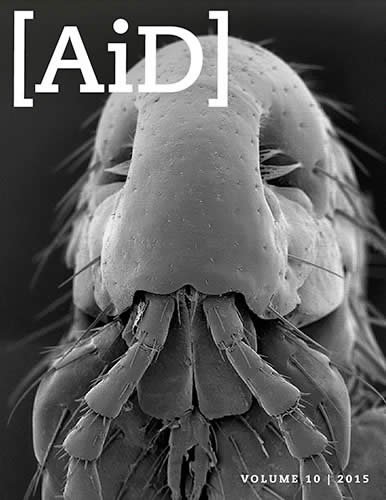
Differences Between Chimp and Human DNA Recalculated
Evolutionists Miss the Real Genetic Gap Between Humans and Chimps
Are humans less evolved than apes? One recent article implies almost as much:
Humankind likes to believe it sits at the top of the evolutionary tree because of its complexity, but our success may be down to us actually losing some of our DNA. Geneticists . . . estimate since early humans split from the common ancestor we shared with our closest living relatives, chimpanzees, we have lost 40.7 million base pairs.1
This recent genetic study2 is just one in a long line of in-depth investigations of the human genetic code. Like a written language, the human DNA code is based on four chemical “letters”—A, T, G, and C—that can be arranged in various ways to carry biologically relevant information. The linear sequence of these letters is about 3 billion chemical letters long, and in 2001, scientists first elucidated much of the order of letters in this sequence.3 Since then, many other studies have attempted to catalog how these 3 billion letters differ amongst the different ethnic populations around the world.4
On average, each ethnic group differs from another by about 2–4 million single DNA letters—about 0.1% of the total human sequence (the genome). This recent study attempted to quantify, not the individual single letter differences, but the “chunks” of differences. By analogy, if we were to compare two books of differing editions to each other, we could line them up word-by-word and count the number of spelling differences. Alternatively, we could compare the books at the sentence level and quantify the number of whole words or entire sentences that have been added or deleted between the two editions. The recent genetic study paralleled the latter.
Unfortunately, rather than stick to an analysis of human genetic variation, the authors sought to put human genetic differences in the context of man’s supposed evolution from the primates. To this end, they searched the chimpanzee and orangutan DNA sequences for chunks of DNA that were (1) shared between chimps and orangutans and also (2) absent from the human DNA sequence. In doing so, the authors claim to have discovered that humans lost 40.7 million DNA letters in the process of evolution from the common ancestor of humans and the great apes.
From a biblical perspective, this conclusion is obviously wrong. The clear and factual history recorded in Genesis 1 makes it clear that God supernaturally created humans in His image (Genesis 1:26–28). God didn’t create humans in an animal image by slowly evolving them from a common ancestor with the apes.
What may come as a surprise to many is that the authors’ conclusions are wrong scientifically as well. Undergirding the author’s conclusion about DNA “loss” is the assumption that humans and apes originally shared a common genetic sequence. Actual genetic data demonstrate a much bigger gap between humans and the apes.
In contrast to the popular assertion that humans and chimpanzees are only 1 to 2% different, when the billions of letters in each species’ genome are lined up letter-by-letter, the genetic gap between these species becomes much bigger. Careful re-tallying of the numbers in the original paper describing the initial elucidation of the chimpanzee DNA sequence suggests that the two species are only ~89% identical.5 An independent reanalysis of a sample of the raw data concurs with this assessment.6
Practically, if humans and chimpanzees are 89% identical or 11% different, this is a gigantic genetic gap. Eleven percent of 3 billion is 330 million. Therefore, a more accurate answer to the human-chimpanzee genetic similarity question is that 330 million DNA letters separate us from our purported evolutionary cousins. These differences weren’t “lost” during evolution. The vast majority of them have likely been present since creation!
In summary, a recent secular publication shows that humans and apes are genetically different—but not for the reasons that the authors surmise. Humans didn’t “lose” 40.7 million base pairs of DNA in their descent from an ape-like ancestor. We know from Scripture that humans and apes never shared an ancestor with the apes, and science confirms this fact. It’s not 41 million differences that separate us from the primates. It’s hundreds of millions of genetic differences—a difference that evolution can never bridge!
Footnotes
- Richard Gray, “Humans Lost DNA as They Evolved: Early Species Had the Equivalent of Thousands More Genes Than We Do Now,” Daily Mail, August 7, 2015, http://www.dailymail.co.uk/sciencetech/article-3187857/Humans-LOST-DNA-evolved-Early-species-equivalent-thousands-genes-now.html.
- P.H. Sudmant et al., “Global Diversity, Population Stratification, and Selection of Human Copy Number Variation” Science 349, no. 6253 (2015), doi:10.1126/science.aab3761.
- International Human Genome Sequencing Consortium et al., “Initial Sequencing and Analysis of the Human Genome,” Nature 409 (2001): 860–921, doi:10.1038/35057062; J.C. Venter et al., “The Sequence of the Human Genome,” Science 291, no. 5507 (2001): 1304–1351, doi: 10.1126/science.1058040.
- For example, see The 1000 Genomes Project Consortium et al. “An Integrated Map of Genetic Variation from 1,092 Human Genomes,” Nature 491 (2012): 56–65, doi:10.1038/nature11632.
- From the original chimpanzee genome sequence paper, “Best reciprocal nucleotide-level alignments of the chimpanzee and human genomes cover, 2.4 gigabases (Gb) of high-quality sequence” (The Chimpanzee Sequencing and Analysis Consortium et al., “Initial Sequence of the Chimpanzee Genome and Comparison with the Human Genome,” Nature 437 (2005): 69–87, doi:10.1038/nature04072). Since the authors sequenced a total of 2.7 billion DNA letters, this implies that only 2.4 billion of the letters matched well between humans and chimps leaving 0.3 billion (2.7–2.4) letters unmatched. A 0.3 billion letter difference is 11% of 2.7 billion.
- Tomkins, “Genome-Wide DNA Alignment Similarity (Identity) for 40,000 Chimpanzee DNA Sequences Queried against the Human Genome is 86–89%,” Answers Research Journal 4 (2011): 233–241, https://answersingenesis.org/genetics/dna-similarities/genome-wide-dna-alignment-similarity-identity-for-40000-chimpanzees/.
Recommended Resources

Answers in Genesis is an apologetics ministry, dedicated to helping Christians defend their faith and proclaim the good news of Jesus Christ.
- Customer Service 800.778.3390
- Available Monday–Friday | 9 AM–5 PM ET
- © 2026 Answers in Genesis


